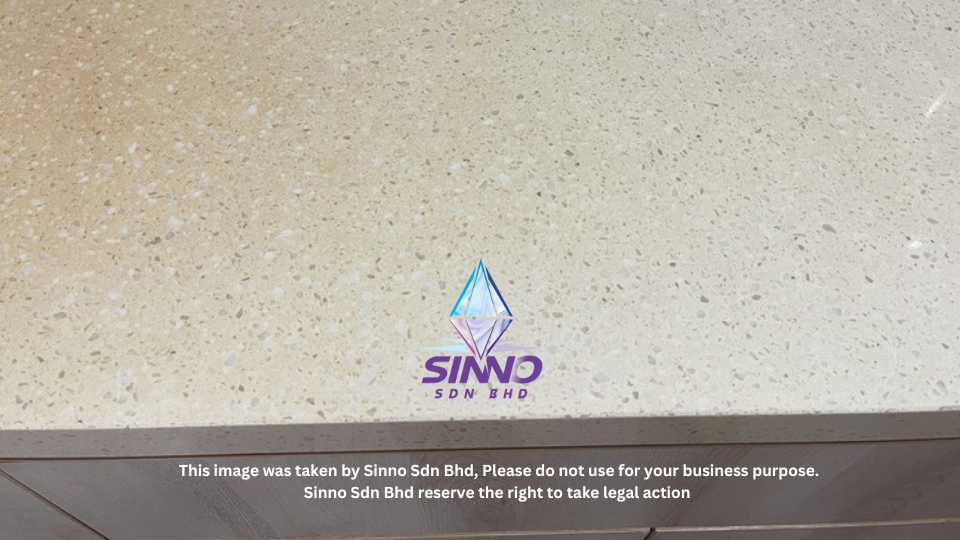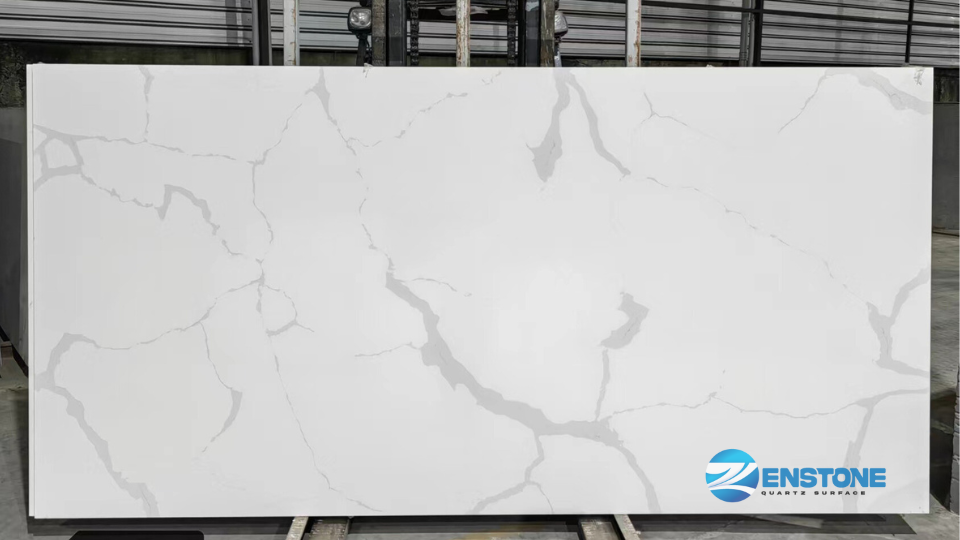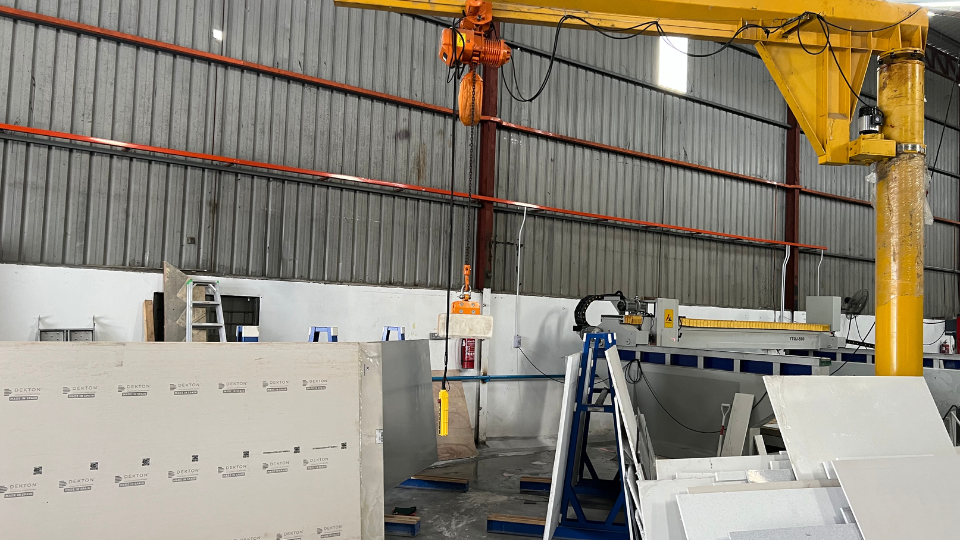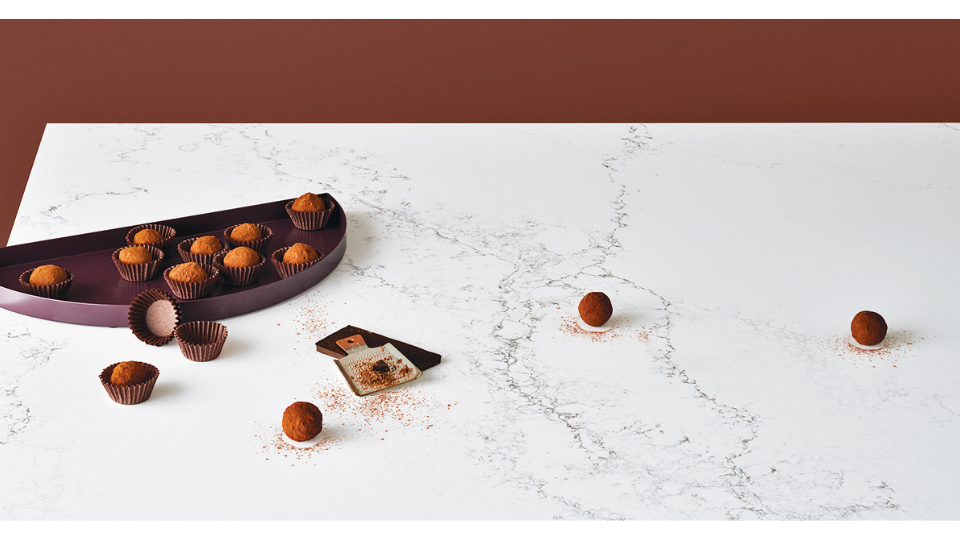Is quartz stone good for countertops? Our answer is yes, the quartz countertop is one of the best options for our home kitchen. However, it’s not invulnerable. What are the disadvantages of a quartz countertop?
We'll discuss the following four factors.
- UV Rays Discolouration
- Colour Preference
- Not A DIY Material
- High Price
UV Rays Discolouration
Quartz stone is not recommended for outdoor applications or areas that are directly exposed to sunlight. The resin content in quartz stone can undergo chemical reactions when exposed to UV rays, leading to discoloration.
Let's how is the discolouration look like: -

The right side exposed to sunlight turns yellow. If you’re using black colour, it’ll turn grey.
Owner said they never close the window and start to notice the discolouration after 5 years.
Colour Preference
Quartz stone's texture, vein and pattern were kneaded by human hand and a mould.

Like it or not is dependent on personal preference.
Some manufacturers have embraced the use of machines to create quartz stone that mimics the natural look. However, it's price tag is usually on the higher side.
Not A Do It Yourself (DIY) Material
Quartz stone slabs are quite heavy, weighing approximately 250kgs per slab. It can be challenging to carry them by hand.
We need to use lifting equipment, such as a forklift or crane, to carry and move it during the fabrication.

Fabrication needs machine for better result.
Plus, many tools - hand cutter, cutting table, cutting disc, driller, diamond drill bit with different diameter, wet and dry polisher, polishing pad with at least 5 different grit, adhesive, super glue, long ruler, L-shape ruler (big and small), marker pen, crayon and many others
Making it extremely difficult for home-based DIY projects.
High Price

The more closely a quartz stone colour resembles a natural look, the more expensive it becomes. What is the reason behind the high price?
- The manufacturer takes years of research and development to craft the colour.
- It is harder to make and requires a complicated process.
- It needs more crafting steps to achieve the natural effect.
- More different minerals are required to fulfil the natural colour effect.
- Require an advance machine to craft the colour.
Conclusion
Despite these disadvantages, quartz stone remains a top choice for countertops.
Each type of stone material has its own advantages and disadvantages. Come visit our showroom and speak with our knowledgeable sales advisor. They will explain why quartz stone is the ideal choice.